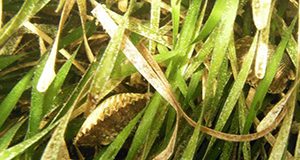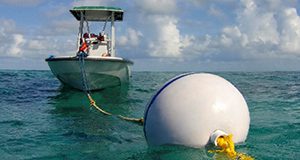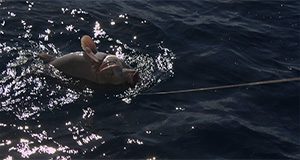Florida leads the country in the number of registered recreational watercraft, with between 867,463 and 921,834 vessels in the state. With so many people out enjoying Florida’s waters, there is significant risk of damage to sensitive coastal habitats such as seagrass meadows. This 4-page fact sheet written by Savanna Barry, Ana Zangroniz, and Joy Hazell and published by the UF/IFAS Florida Sea Grant College Program explains the importance of protecting seagrass meadows by responsible boating and gives tips to boaters about how to practice seagrass-safe boating.
http://edis.ifas.ufl.edu/sg151
Tag: Joy Hazell
Responsible Boating Protects Coral Reefs
Florida is often referred to as the boating capital of the nation, with more than 930,000 registered vessels. Florida’s numerous natural resources such as mangroves, seagrasses, estuaries and coral reefs are a major draw to resident and visiting boaters alike. Outdoor activities associated with boating, such as birding, fishing, swimming, snorkeling, and diving, contribute to the state’s economy. However, increased traffic on the water can bring potential risks, particularly to sensitive ocean bottom habitats such as coral reefs and seagrasses. This 4-page fact sheet written by Ana Zangroniz, Savanna Barry, and Joy Hazell and published by the UF/IFAS Florida Sea Grant College Program gives an introduction to the corals and coral reefs of Florida, provides ecological and economic information, and lists simple steps to ensure that safe boating practices reduce physical impacts on coral reefs.
http://edis.ifas.ufl.edu/sg152
Awareness, Knowledge, and Perceptions of Barotrauma and Barotrauma Mitigation: A Survey of Florida Anglers
Saltwater recreational fishing is an important economic engine for Florida’s coastal communities. The annual economic impact to the Florida economy of saltwater recreational fishing, which sustains 110,000 jobs, is estimated to be $13 billion. Given the popularity and economic importance of reef fish, careful management of these fish stocks is imperative for the sustainability of the reef-fish resource. Barotrauma, a phenomenon that causes problems for deep-water fish caught and brought to the surface, is recognized by fishery managers as a key cause of death in “catch-and-release” reef fish. This 5-page fact sheet written by Charles Adams, Joy Hazell, Lisa Krimsky, Bryan Fluech, Betty Staugler, John Stevely, and Robert Botta and published by Food and Resource Economics Department describes a recent survey of Florida saltwater anglers and sheds light on incentives for and constraints against the use of barotrauma mitigation devices.
http://edis.ifas.ufl.edu/fe1010
ENH1157/EP417 Railroad Vine: Ipomoea pes-caprae, a Florida Native Plant
ENH1157,a 7-page illustrated fact sheet by Stephen H. Brown and Joy Hazell, describes this pantropic vine found on beaches and dunes throughout peninsular Florida — geographic distribution, ecological function, growth habit, morphology and reproduction, and planting and maintenance guidelines. Includes references. Published by the UF Department of Environmental Horticulture, February 2010.
http://edis.ifas.ufl.edu/ep417


